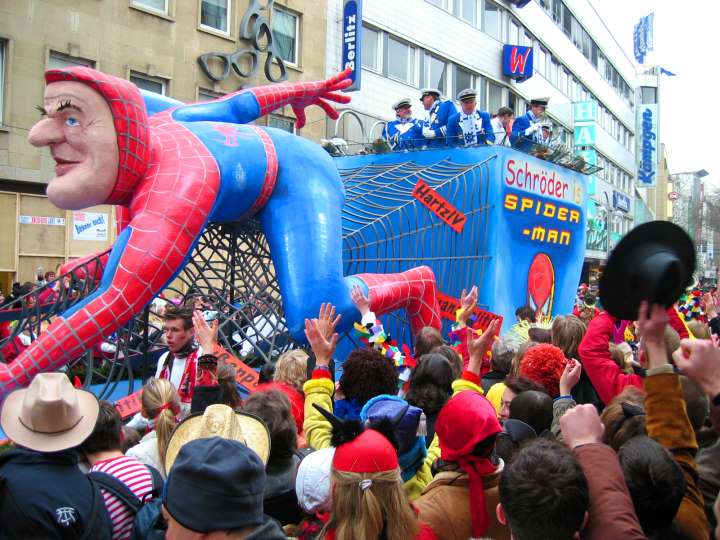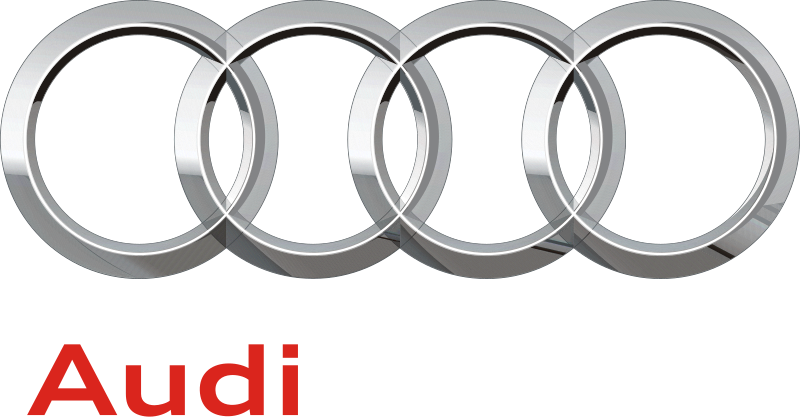Grüß dich! GUTEN TAG!
I recently gained interest in knowing more about Germany. The ONLY reason why is because of - Tara Sophie Miew-Gim Burgman, my cousin from Germany. Interesting name?? I know. =D
Okay, before talking about the culture of Germany, here are some facts that you should
know. : -
1. Germany is located in the heart of Europe and it consists of 16 states.
2. Some 82 million people live there and the largest state is Berlin.
3. Germany has 9 direct neighbours -Denmark to the north, the Netherlands and Belgium to the northwest, France and Luxembourg to the west, Austria and Switzerland to the south, and the Czech Republic and Poland to the east.
4. Germany is also home to many world-famous composers of classical music - Bach, Handel, Beethoven, Brahms, Wagner etc.
5. Germany has been the home of many famous inventors and engineers, such as Johannes Gutenberg, who is credited with the invention of movable type printing in Europe; Konrad Zuse, who built the first computer and also most importantly Albert Einstein who developed the general theory of physics. German inventors, engineers and industrialists such as Zeppelin, Daimler, Diesel, Otto, Wankel, Von Braun and Benz also helped shape modern automotive and air transportation technology including the beginnings of space travel.
 |
| Tara frolicking through spring. |
Okay, before talking about the culture of Germany, here are some facts that you should
know. : -
1. Germany is located in the heart of Europe and it consists of 16 states.
2. Some 82 million people live there and the largest state is Berlin.
3. Germany has 9 direct neighbours -Denmark to the north, the Netherlands and Belgium to the northwest, France and Luxembourg to the west, Austria and Switzerland to the south, and the Czech Republic and Poland to the east.
4. Germany is also home to many world-famous composers of classical music - Bach, Handel, Beethoven, Brahms, Wagner etc.
5. Germany has been the home of many famous inventors and engineers, such as Johannes Gutenberg, who is credited with the invention of movable type printing in Europe; Konrad Zuse, who built the first computer and also most importantly Albert Einstein who developed the general theory of physics. German inventors, engineers and industrialists such as Zeppelin, Daimler, Diesel, Otto, Wankel, Von Braun and Benz also helped shape modern automotive and air transportation technology including the beginnings of space travel.
( Germany colored dark green. Europe
colored green and dark grey. )
After doing much research on Germany, I have gained a tremendous amount of knowledge of Germany.
First and foremost, Germans are inseparable with BEER, BREAD/PRETZELS AND SAUSAGES -
 GERMANS LOVE THEIR BEER. LOVE . If you have been to Germany and never had beer, you have never experienced or went to Germany, unless your religion doesn't let you to. The Germans are ranked 2nd in world-wide beer consumption per person after Ireland. Beer is considered a food in Bayern, Germany. Germany is the cheapest place in Europe to buy beer, but also the most difficult in which to make a choice as there are over 1,500 different brands and types of beer in this country!
GERMANS LOVE THEIR BEER. LOVE . If you have been to Germany and never had beer, you have never experienced or went to Germany, unless your religion doesn't let you to. The Germans are ranked 2nd in world-wide beer consumption per person after Ireland. Beer is considered a food in Bayern, Germany. Germany is the cheapest place in Europe to buy beer, but also the most difficult in which to make a choice as there are over 1,500 different brands and types of beer in this country!
“Give us this day our daily bread.” No other nation seems to have taken that line from the Lord’s Prayer so much to heart as the Germans. Bread is more than just food; it is part of German culture. Every German eats an average of 53 kg bread per year. It is estimated that there are 300 varieties of bread in Germany. Bread makes up a large part of the German cuisine. It is the basis of both the morning and evening meals and its influence stretches into holiday celebrations and festivals.
 Wurst refereed to as German sausages or cold cuts are German specialties and plays a big part in German cuisines. From Knackwurst to Drei im Weggla , from Salami to Frankfurters - there are over 1,500 different kinds of wurst. Germans take their sausages very seriously. For example, Bockwurst (picture on bottom left is a mixture of ground veal and pork with addition of cream and eggs ) is usually consumed with bock beer and bread or Weisswurst ( picture on bottom right) is traditionally boiled, rather than grilled or griddled, and served with pretzels and sweet German whole-grain mustard.
Wurst refereed to as German sausages or cold cuts are German specialties and plays a big part in German cuisines. From Knackwurst to Drei im Weggla , from Salami to Frankfurters - there are over 1,500 different kinds of wurst. Germans take their sausages very seriously. For example, Bockwurst (picture on bottom left is a mixture of ground veal and pork with addition of cream and eggs ) is usually consumed with bock beer and bread or Weisswurst ( picture on bottom right) is traditionally boiled, rather than grilled or griddled, and served with pretzels and sweet German whole-grain mustard.
Secondly, Germans love to celebrate. They have different kinds of festivals and traditions that celebrate marriages or supposedly happy royal events to Fasching.
1. OKTOBERFEST / '' die Wiesn ''
Oktoberfest is a 16- day festival that is celebrated in Munich, Germany
that runs from late September to the first week of October. It is the Largest
Volksfest ( People’s Fair ) and is also a family-friendly festival with
carnival rides, carousels, roller coasters, musical showcases and traditional
parades fit for all ages.
 |
| A waitress carrying 12 steins of beer. At the festival, the beer is served in one-liter mugs full to the brim. |
Short story behind Oktoberfest:
King Ludwig I married Princess Therese of Saxe-Hildburghausen on October 12, 1810. The people of Munich were invited to attend the festival to celebrate the marriage on the fields in front of the city gates. The festival was filled with food and beer and it carried on the following year and so on and it eventually became an annual event for the citizens. This festival is now celebrated in September due to weather conditions and for the past 200 years, it has been cancelled 24 times due to war or cholera epidemics.
FACTS ABOUT OKTOBERFEST :
1. Nobody raises
their mugs until the mayor shouts O’ zapft is! (“It’s tapped!”),
officially announcing the start of the festival and offering the first mug to
the Minister-President of the state of Bavaria.
2. According to Munich's tourist
office, Oktoberfest brings in an estimated $1.2 billion, and employs about
12,000 workers.
3. The largest
crowd drawn to Oktoberfest was over seven million visitors in 1985.
4. The
amount of beer consumed by Oktoberfest patrons is an astounding 7.5 million
liters, or close to 1.98 million gallons—that's enough to fill three Olympic
swimming pools!
5. During the festival in 2013, 1,300 items of clothing and more than 1,000 identity cards
being lost, along with 425 lost keys, 390 lost mobile phones, and 370 lost
pairs of eyeglasses. Ninety cameras and 80 jewellery items were also turned in to
the Lost and Found, along with a set of dentures, Viking helmets, crutches,
wedding rings, and even passports.
6. '' Prost'' or ''zum wohl''
is cheers for Germans, meaning to your health.
7. Oktoberfest waiters and
waitresses can be seen carrying trays with up to 10 mugs at a time!
8. Pay
attention to the ladies' Dirndl dresses during Oktoberfest, as a little bow can
tell you a lot about the person wearing it. If the bow is on the left side,
it's understood she is single and willing to mingle. However, if her bow is on
the right side, her affections are already given to someone else.
2. POLTERABEND - WEDDING TRADITION
 |
| (The finishing result after the throwing of bowls, plates, sinks, tiles. toilet bowls, etc.) |
A video showing a Polterabend ceremony.
3. Fasching
Fasching
is a carnival season celebrated in Germany which was originally a Pagan
festival tracking back to ancient Rome or Greece and is more associated with
Christian Churches. Different areas give it different names, for example Karneval,
Fastnacht, Fasnet, or Fosnat. Fasching is only the name used in and around
Munich.
Fasching officially starts on 11 November at 11.11am and it continues in low key for about 3 months until 7 weeks before Easter. These 7 weeks is the time when people ‘‘ flip out’’ and begin to have fun before the beginning of Lent ( fasting period that last approximately six weeks leading up to Easter ).
Well, other than it's food and festivals, let's talk about it's economy. Germany is currently the second largest exporter and third largest importer of goods in the world and also has the world's fourth largest economy by nominal GDP ( Gross Domestic Profit ). In Malaysia and all over the world, German companies have an excellent reputation. The words ''Made in Germany'' is a seal of quality of the product itself, representing innovation, quality and cutting-edge technology. Agree?
In year 2010 , based on the world's 500 largest stock market list companies measured by revenue by Fortune Global 500, 37 out of 500 are headquartered in Germany and out of the 37 companies, 30 are German companies. YOU probably didn't notice , however, many brands that we use in our daily lives are actually products of Germany ( mostly automotive products ).
In year 2010 , based on the world's 500 largest stock market list companies measured by revenue by Fortune Global 500, 37 out of 500 are headquartered in Germany and out of the 37 companies, 30 are German companies. YOU probably didn't notice , however, many brands that we use in our daily lives are actually products of Germany ( mostly automotive products ).
Well, with it's advanced automotive industry, the Germans surely know how to fully use their speedy cars, travelling with Deusche Bahn ( highways).
70% of German highways have NO speed limit.
It is not unusual to see sports cars such as Porsches and BMWs traveling at almost 150 mph (250 kph). One shocking fact is that people have been caught because they we're driving tooooooooo slowly at 130 km/h.
Okay, more about their culture, let's talk about their superstitions! Are Germans superstition people? Well...... :
1. Never ever say ''cheers'' or '' prost'' with water in Germany. Not even for a joke. You are literally wishing death on all your drinking buddies. It means you want your friends to die.
2. Germans believe that if someone has difficulty dying, one may ease the process by lifting up three tiles on the roof.
3.German people love pets. In Germany, traditionally, when their dog dies, they usually bury the dog body under the door step. It is believed that the dog's ghost will protect their house from thieves.
4.Germans belief that when you call out the name of a dead person three times on Christmas Eve, it's like some sort of spell that caused their ghost to appear.
5. There are a range of German superstitions related to old ladies, who are generally seen as evil. Which they are, obviously. According to ancient medieval custom, one of the unluckiest things you can do is walk between two of them on the road. Because then they'll trap you in a pincer movement like the velociraptors in Jurassic Park.

6. The traditional gift at a housewarming party is bread and salt. It will make sure that your new hosts will never be hungry in their new home.


Lastly, let's look at Neuschwanstein Castle in Bavaria, Germany.
HAVE YOU SEEN SOMETHING SIMILAR TO THIS BEFORE???
REMEMBER NOW???
Well, if you don't, it's the Sleeping Beauty Castle in Disney Land, it was modelled according to the Neuschwanstein Castle.
Okay, I'll share with you a few more interesting facts of Germany that I recently found out before ending.
Let's take a look at THE 5 !
1. The longest word published in the German language is Donaudampfschifffahrtselektrizitätenhauptbetriebswerkbauunterbeamtengesellschaft, which means: Association for subordinate officials of the head office management of the Danube steamboat electrical services.
2. Repairing anything in Germany is so expensive that most often it is easier to buy a new thing.
3. Due to staggering inflation in the 1920's, 4,000,000,000,000,000,000 German marks were worth 1 US dollar.
4. The invitation to drink a cup of coffee together in the evening from German men, often means an invitation to sex.
5. Other notable German inventions include: the telephone, diesel engine, aspirin, fluorescent lamp, and the pregnancy test.
Okay, that's about it. I had fun doing research about Germany and have put quiet a lot of effort into writing this blog - my first one in my entire life - my 'baby' . I really hope you like it and THANKS FOR READING !
Written by,
Tan Pin-Xiu
FIA July 2013 - Group 6
"Danke!"
( Thank you ! )
References : http://www.fairobserver.com/article/germany-and-bread-slice-home
http://german.about.com/od/culture/tp/Fasching-In-Germany.htm

























No comments:
Post a Comment